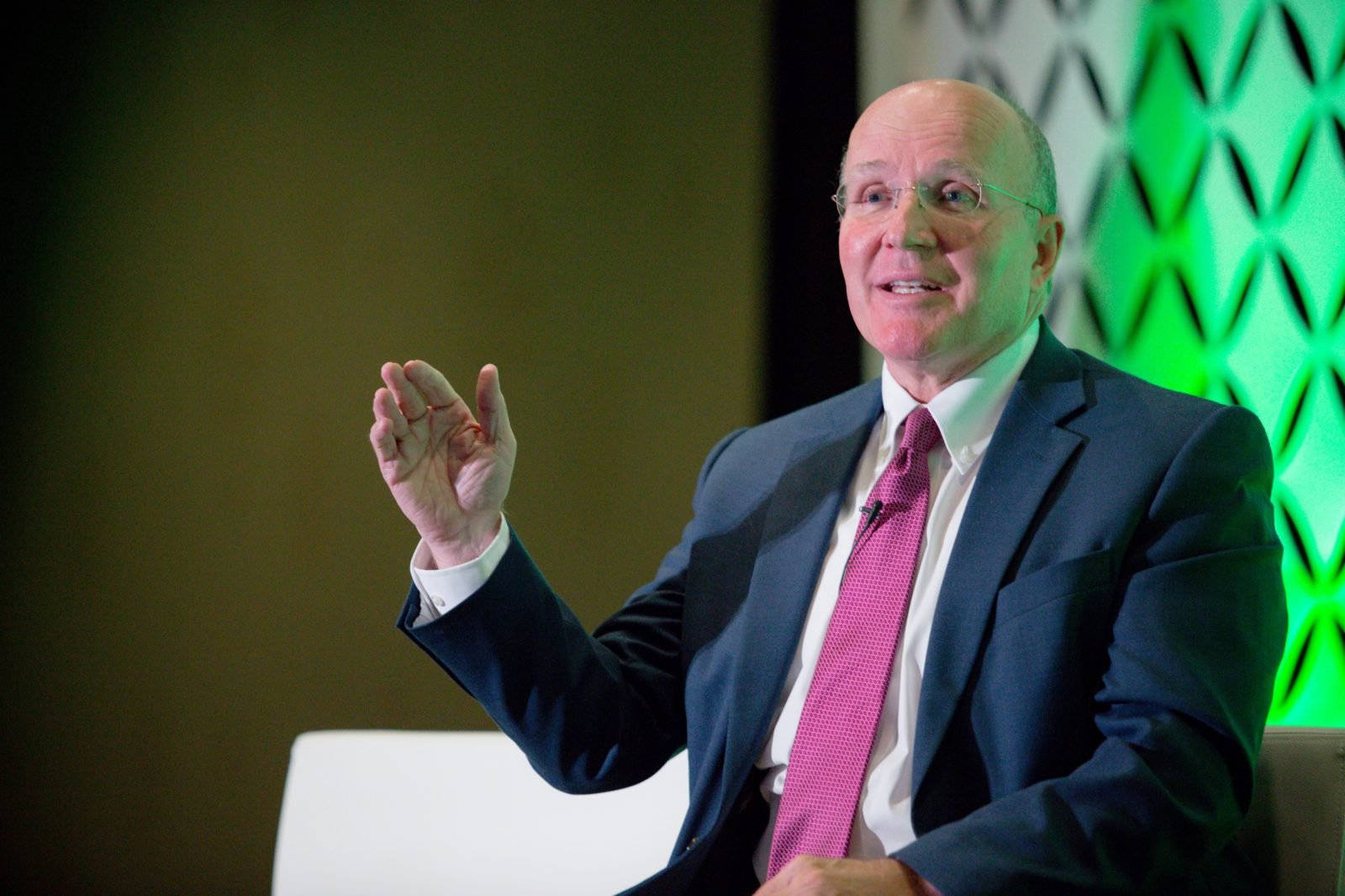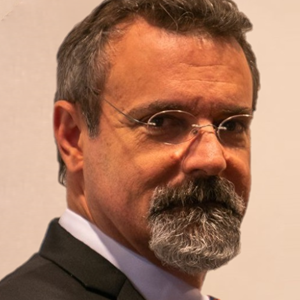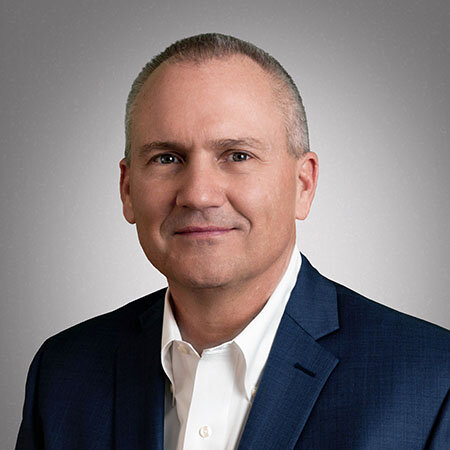[Editor’s Note: Scroll to the bottom for some excellent resources that Mark provided to us for inclusion in the show notes.]
Ed’s Questions: Segment One
Welcome to The Soul of Enterprise: Business in the Knowledge Economy, sponsored by Sage, transforming the way people think and work so their organizations can thrive. I’m Ed Kless with my friend and co-host, Ron Baker, and folks on today's show, we are pleased to have with us, Mark Wickersham. Hey, Ron?
Ron
Hey, Ed, how’s it going?
Ed
Going great, rehearsing a lot for my show. We'll talk more about that later, maybe in the bonus episode.
Ron
That's cool. Well, I'm excited about today, longtime friend Mark Wickersham is with us, by audience demand, too.
Ed
I know, which is great. So we expect some great ratings from this one, looking forward to it. Well, let me get the particulars out of the way. Mark Wickersham is a chartered accountant, public speaker and number one best-selling author. He is a most sought-after profit improvement expert in the accounting community. He also strongly believes that the old business model, the way accountants are taught to run accounting firms, is not only commercially stupid, but unethical. Mark is a widely published author on practice issues and in May 2011, his book Effective Pricing for Accountants was a number one Amazon bestseller. Welcome to The Soul of Enterprise, Mark Wickersham.
Well, we are happy to have you. For the benefit of our audience who don't know you that well, let's delve into what's the Mark Wickersham story. How’d you up here?
And why do you do this, Mark? Why you do what you do—the Simon Sinek “Why” question?
I love that part of your story. You improved your pricing in the firm that you had started, made it really profitable, but loved doing this so much that you said, “I'm going to walk away from that profit to go over here and start this other thing” because you were so passionate about it.
It's a great story. I have to ask you about this because I did pull that line that I used in your read in from your bio on your website. Why unethical? Why is the current model that most accountants use not only suboptimal, clearly, which you've demonstrated and proved over and over again in all the firm's, but why is it also unethical?
And I would add to that the flip side, which is all of the accounting professionals who put on their timesheets not what actually happened, but what they think should have happened so that when the boss, like you, is reviewing the account, you said, “Oh, look at this, we're right on budget where we thought we were going to be.”
Now, talk to me a little bit about this. In your practice, when you've helped people shift, do you find that some still try to cling on to the timesheet? And what is your advice to them? Or what is your admonition to them, I guess is a better word?
Right and that's clearly the value pricing to which we would certainly want to talk to you about, I just want to harp on the timesheet a little bit. Do you absolutely recommend that people rid themselves of the timesheet, and that’s one of the core messages that you preach?
I think I know the answer to this question, but I want to hear it from you. In your role as a consultant to the profession, how do you handle the question when they say to you, “Well, what's your hourly rate?”
I found it hysterical that people come occasionally to Ron and myself who want help with pricing, and then have they ask the unironic question, at least in their mind, about what our charge rate is.
Well, and so let's talk a little bit about that. We've got about two minutes before our break. Why don't you get that question? What is it that you do from a marketing standpoint that you just don't get that question?
Perfect. Well, we're up against our first break.
Ron’s Questions: Segment Two
Welcome back, everybody. We're here with Mark Wickersham, of the Value Pricing Academy. Mark, so funny, you were talking about the timesheet and filling in all the non-billable time. Recently, there was a hurricane, I think it was a couple years ago, and one Big Four actually issued a code to its employees for the hurricane. So if you were put out of work by the hurricane, you had a code for your timesheet, unbelievable. I actually saw the memo that went out, it was hysterical. I have a question for you, Mark. You have said that, per a recent benchmarking report, over 50% of accounting firms don't make an economic profit. You didn't say profit, you said economic profit. Explain why you think that's happened?
I agree. But do you think it goes deeper than that? We do a lot of shows on strategy and positioning and our colleague, Tim Williams, who I think you saw, or met down in Allen, Texas when you came, he's really convinced me, and we say all the time, that you can't value price the wrong customer. And it just seems to me that so many firms try and be all things to all people. They’ve never met a billable hour they didn't like, a dollar they didn’t like, a customer they didn't like, and they just they refuse to niche down. Do you think that's also part of the problem?
I couldn't agree more. I actually think we pay lip service to the relationship. Because our business model is not aligned to monetizing the relationship. It's aligned to monetizing transactions, even to some extent that's true of value pricing, which pains me to say by the way, but I've come to that conclusion. What's your response to that?
I've come to that conclusion because we don't put the relationship is not at the center of the business model. What is at the center is this idea of pricing the customer and figuring out a scope of work and all this stuff, having change orders, if you go out of scope, all this crap. This is why I'm big proponent of subscription because it does away with all of that. I mean, it’s a topic we can talk about later, but I just think we pay lip service as a profession to the relationship. Because as you say, Mark, there's no way to have a relationship with over 100 clients.
I totally agree. And I've come back to this idea that it's because that sitting down and thinking isn't billable, I can't put that on my pricing proposal, I can't put that on my timesheet. There's no reward structure for investing in the lifetime value of the customer, which the subscription puts at the forefront of your KPIs, your dashboard, and your mind, and innovation is baked into that model. That's why subscription is superior as a business model than just a value pricing firm.
To some extent, Mark, I think making the leap from hourly to subscription is easier than going from value pricing to subscription. So in some respects, those people that are stuck in hourly have an easier time of making that transformation. But that's something that we talk a lot about, we have multiple shows on it. But let me get your ideas on this. You published a book, I think it was in [2016], How to Build a Successful Bookkeeping Business. I think you've had a co-author, is that right? Yes, [Jane Aylwin]. We talk a lot about bookkeepers having deeper relationships with their customers then do the accountants because they're at the coal face, they're usually in there, and they might get called first by the customer when they're having a problem to find out what to do about it. Do you find that's true—that the bookkeepers actually have better relationships with the customers?
I have a feeling we're going to see more move to subscription from bookkeepers then we will form accountants, at least at the start, because they already understand the value of that relationship. And like you said, they have fewer customers as well. That helps because they have deeper relationships with every one of them. I don't know if you saw this, but there was an article recently in Harvard Business Review, of all places, which I just stopped reading because I think everything in it is pretty much wrong. But it was an interesting article called, “What Professional Service Firms Must Do to Thrive.” And they actually had a spectrum, a way to analyze your customer portfolio: commodity work, procedure work, gray hair work, where it requires more experience, and then rocket science, that's the real creative/innovative stuff. And what they pointed out was, firms as they grow, even if they start in their lane, will inevitably spread out across, maybe not the entire spectrum, but most of it, in one way or the other. Even if they start at rocket science, they'll slide down to commodity or the procedure work. And I just think this is a big problem in our profession. We just go after everything. And then we wonder why there's dissension among the leadership and disagreements. We wonder why it's hard to train team members; because we don't stand for anything, we’ll take anybody.
And that's a hard sell, I have found, to try and get businesses, or firms, to niche down and shed lines. I think you're defined by the customers you don't have, and the services you don't provide. Like you said, it makes it easier to say No, when you're easily in your lane, when you know what your lane is.
But it's so counterintuitive, it scares the heck out of people. Well, Mark, this is great. Unfortunately, we're up against our next break.
Ed’s Questions: Segment Three
And we are back with Mark Wickersham, chartered accountant, public speaker and number one bestselling author of the book Effective Pricing for Accountants, we will put a link in the show notes to hopefully drive some new book sales for Mark, maybe get back to number one for you, Mark, how about that? Mark, I wanted to talk with you a little bit about what has been your experience both personally and professionally. Is there anything that surprised you about the way the profession reacted to and it has handled, the COVID-19 situation?
Yeah, interesting you point that out, because I just was doing some rereading for a presentation I had to do this week, and I was reminded of Tim Harford's book, who's also in the UK, and wrote a great book called Fifty Inventions That Shaped the Modern Economy, one of them being double entry bookkeeping, and he makes the point in his book about this, that the very language of accounting is auditory, is language, right? It's a verbal accounting, it's auditors who were the listeners. And we're really getting back originally to the roots over that, over this relationship piece, which I just found fascinating. Any thoughts on that?
Check out Tim Harford, you can find a video of him, I think you would find his stuff pretty robust. And he's got a new one called The Data Detective, which I think you would like as well. You anticipated, in a way, my next question in your answer to the one about COVID-19. And you gave part of your answer, but I want you to expound on it a little bit. Talk about the problems with the partnership model.
Well as my brilliant co-host often says, when these big firms get together, it's dinosaurs mating—I love that phrase. So, Mark, I'm going to ask you, I think this is probably my most challenging question. So just to give that as a run, we've got about three minutes left. A study was done about 10 years ago of Canadian accounting professionals, so it included accountants and bookkeepers, but people who were practitioners, small firms. Curiously, it came back with the following: that men-owned firms out charged women-owned firms, in roughly the same proportion as we see in the economy, women make 80 cents on the dollar compared to men. So the women-owned firms were charging 80%, roughly, of what the male-owned firms were charging. And what I found interesting about this is they're setting their own price. Do you find anything, in the folks that you work with—and again, this is a phrase that I stole from my mentor, Howard Hanson, this is not sexist, but gender specific. Do you find that there are challenges and differences between men and women in the way they set price?
And I would be curious If you have any data about that, because I think what you just said is absolutely true, because Ron and I have worked with a lot of, especially in Canada, that's where this whole thing started. And we find that the women who move are much more, let's call it, aggressive with their pricing, once it starts to click, I think they're better at it.
Yeah, that's great stuff, Mark. But we were up against our last break.
Ron’s Questions: Fourth Segment
Welcome back, everybody, we're here with Mark Wickersham. And Mark, I know your Value Pricing Academy has customers from around the world. And I would imagine the English-speaking world. So tell me, which countries do you see leading in the diffusion—that diffusion curve, the innovators, the early adapters, and the early majority, you've seen that bell curve diffusion curve? Which country is in the lead in terms of adoption—that is, percentage of firms adopting value pricing?
It's been my experience that the US is still in the lead in terms of diffusion. If you look at some of the AICPA stats, or the state societies, 30% to 40% of firms report they do value pricing. Now, I take those numbers with a huge vat of salt, because it's self-reported, it might not be a random sample, all of those problems. But there is no way if you roll the clock back 20 to 25 years, you would have got five or 10% of firms saying that they do value pricing, or fixed prices, or something like that. I just find it interesting, because I hear different things from different people who say that Britain's ahead, US lags, whatever. And it's just interesting to get different perspectives. The other thing, Mark, I know you like behavioral economics, the whole options, and anchoring, and framing, and choices, and all of that. Has there been any new insights from that field that have caught your eye in terms of how they can apply to pricing?
I haven't. The guy who I keep abreast of just to decipher this for me is Rory Sutherland. And he's from Ogilvy & Mather in the UK. He's all over on video, you can catch him speaking at conferences through YouTube or whatever. And he always comes up with some really interesting way to frame a pricing issue, because that's part of his work is in pricing. How about for firms that want to transition to value pricing, obviously, they should join your Value Pricing Academy. But I know you've published a lot of books, which of your books would you point them to? To get their feet wet? To be exposed to the idea?
Mark Wickersham
That's a good question. I think that my second book, which is A Practical Approach to Value Pricing, is arguably the better one, because my first book I had no idea what I was doing. I had never written a book before, and so whilst people say wonderful things about it, it was a kind of a scattered getting my thoughts out, whereas the second one was much more structured in terms of some of the key foundations of value pricing. So that's the one I'd always recommend—start with A Practical Approach to Value Pricing.
Ron
Okay, excellent. And we'll link to all your books in the show notes. And then I'm also curious, have you got anything new in the works?
Mark, I just have to say this. I remember you sent me a video of one of your programs. And I was just amazed as you were going through something that had like 25 ideas for firms. One of them was to start a social club, a CEO/CFO club, I forget what you called it, CEO roundtable or something. And you went through all of these things. And I just thought, this guy is not just doing value pricing. Since value pricing touches everything else in the firm, your scope is far beyond value pricing. I get the branding, and I get why you want to say that, I'm just saying that I know that your content is way beyond pricing.
Awesome. And Mark, where can people find you? What's the best way to learn more about what you do?
Mark
All sorts of ways. So connect on LinkedIn, anyone who connects on LinkedIn, I can then send through some links to some free resources. I have a Facebook group called Value Pricing with Mark Wickersham. I actually spend more time on Facebook than LinkedIn. So I interact with people via that, and I run I do a lot of live streams on my YouTube channel. So follow my videos on YouTube, come to a live stream session, and type some stuff in the comments. And then we can start a conversation.
Ron
Excellent. Well, Mark, thank you so much. It's been an honor to finally have you on, it's long overdue but thrilled that you gave us some time here. Thank you so much. Ed, What do we have coming up next week?
Ed
Next week, Ron, I'm excited that we're going to welcome to the show Mustafa Akyol, author of Reopening Muslim Minds: A Return to Reason, Freedom, and Tolerance, and Islam Without Extremes: A Muslim Case for Liberty. It’ll be fun.
Ron
Looking forward to it, see you in 167 hours.
Ed
This has been The Soul of Enterprise: Business in the Knowledge Economy, sponsored by Sage, transforming the way people think and work so their organizations can thrive. I'm Ed Kless, with my friend and co-host, Ron Baker, and we are signing off, but please do us a favor and subscribe to the podcast on your player of choice. And we'll see you next week.
More Resources from Mark Wickersham
FREE BENCHMARKING SURVEY RESULTS
In July 2019 I carried out a survey of 2,683 accounting professionals to find out exactly how – and how much – they charge for bookkeeping services. You can grab a free sample copy here:
https://www.wickersham.co.uk/store/eGMMmYv4
FREE LIVE TRAINING WITH ME EVERY MONTH
Is this the year you want to take your income to another level? Join me every month on a 60-minute online training session and I’ll share with you powerful pricing strategies. Click here to find out more and to get on the VIP list…
https://www.wickersham.co.uk/p/free-mentoring
FREE SUPPORT GROUP
Have you visited my Facebook group? It’s dedicated to helping accounting professionals master value pricing. To request access to it, click here https://www.facebook.com/groups/valuepricingwithmarkwickersham/
BECOME A FOUNDER MEMBER
Last month I launched the Online Live Academy and this is your opportunity to be a founder member with a special price locked in for life. Find out more here, https://ola.wickersham.co.uk



























